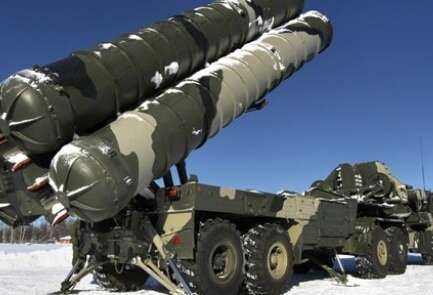Israel has asked Moscow not to deliver advanced S-300 anti-aircraft missile systems to Syrian President Bashar Assad's regime, a Russian diplomat who spoke on condition of anonymity said Monday.
An Israeli government spokesman declined to comment on the report.
Russian Foreign Minister Sergey Lavrov said Monday that Russia had not yet decided whether it would deliver the missile systems to Syria, but would not make it a secret if the matter is decided, the TASS news agency reported.
Earlier Monday, citing unnamed military sources, Russia's daily Kommersant newspaper reported that Russia might start supplying the anti-aircraft missile systems to Syria in the near future.
Lavrov said Friday that Western military strikes on Syria earlier this month, launched in response to alleged poison gas attacks on a rebel-held town near Damascus, had removed any moral obligations the Russians may have had to refrain from supplying the Syrian regime, Russia's ally, with the missile systems.
"We'll have to wait to see what specific decisions the Russian leadership and representatives of Syria will take," TASS cited Lavrov as saying Monday during a visit to Beijing.
"There is probably no secret about this and it can all be announced," Lavrov added.
Kommersant reported Monday that experts believed Israel would react negatively to any move to deliver the missiles and might bomb the area where they would be deployed.
Israel has made repeated efforts to persuade Moscow not to sell the systems to Syria, as it fears this would hinder its aerial capabilities against arms shipments to the Iranian-backed Lebanese terrorist group Hezbollah. Israel has carried out multiple air strikes against such suspected shipments.
Justin Bronk, an analyst from the Royal United Services Institute in London, said previous attempts by the Assad regime to buy the S-300 were never concluded because Israel managed to persuade Russia, through the supply of unmanned drone technology, not to go through with the deals.
He said he thought it was now likely that Russia would supply Syria with the S-300 system, although it was unclear which of the several versions, with significantly differing capabilities, Syria would receive.




